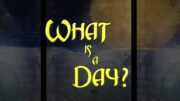Discussion of how naturalistic evolution is not realistic
God’s Creation – in one form or another – is realistic
A. Naturalistic Evolution is what “unbelievers” believe.
The idea of our existence on earth as a natural formation started centuries early – perhaps as early as BC 300. The basic description of evolution then began with Charles Darwin in 1838 onward as he focused on “natural selection.” His book On the Origin of Species was published in 1859.
One of the things to see is that people who focus on evolution do not believe in God’s creation, and that is one of the reasons that they commit themselves to both naturalism and evolution.
In Romans 1:18ff, the apostle Paul said that God’s creation is clearly seen, but unbelievers don’t believe in God’s creation. God’s Word has a view of God’s creation versus a world that created itself. Some passages focus on God’s creation:
- Genesis 1
- Psalm 8:3, Psalm 33:6-9, Psalm 104:5
- John 1:3 – Hebrews 11:3 – 2 Peter 3:5
There are also passages – besides Romans 1:18ff – that unbelievers choose something other than God, which is a form of denying God as the Creator of existence.
- Deuteronomy 4:19
- Job 31:26-28
B. Naturalistic Evolution does not have proof.
Creation does not have “proof,” but neither does naturalistic evolution. There are arguments either way, but the directions people take tends to be choices in the heart, the mind, and the flesh – versus proof or even strong evidences.
Believers in Christ believe in creation because they believe in God and the Bible. Atheists believe in naturalistic evolution not because of strong evidences but for two or three reasons:
1. They were taught by faculty members that they trusted.
2. They are required to commit to evolution as faculty members or some other occupation.
3. They don’t choose to believe in God, and therefore they don’t commit to God’s creation.
In fact, the non-biblical naturalistic evolutionists do not see “proof” – just reasonable arguments. But Creation has reasonable arguments. So people do not believe what is true or proven, but what makes sense to them.
Here are two true conversations that illustrate – and display – that the ones believing in naturalistic evolution do not have proof, but a belief based on choice.
Conversation #1
As a student at U. of Texas (1968 or 69) I had a course in biology. The professor was the Dean of the Biology Department and he taught evolution to the class. I had questions about it so I talked to him after class. He replied to me that there are two views of existence – evolution and creation – but neither has proof. In fact, neither one is genuinely realistic. But because he does not believe in creation, he has chosen to believe in evolution. When I left the conversation I realized that secular scientists are not honest when they claim that evolution is a scientific reality – they simply believe what they choose to believe.
Conversation #2
Tony Campolo, a faculty member at Eastern University, Saint Davids, PA, was speaking at a conference in Roanoke, VA, and shared one of his university messages about God and creation. A student stood up and said, “You believe by choice, not by proof.”
Tony Campolo agreed but had a response. He said, “Yes – I believe by choice, not proof. And you take your atheistic views the same way – by choice, not by proof. Each of us makes a choice; neither of us has proof. The question is not who has proof, but which of the decisions is better. That is something that each of us decides.”
Conclusion on the 2 conversations as illustration
The stories above are saying that there is no scientific proof for creation or evolution, and so different people believe either way, not due to proof but because of believe in God or lack of belief in God.
The problem is that many of the evolutionists are basically “liars,” claiming that evolution is true due to proof, and insisting that education in public schools and universities must teach only evolution, not creation. Their teaching claims that naturalistic evolution is a reality, whereas it is merely a choice.
C. The Bible says that all existence is the result of God’s creation. Whereas believers in God believe in His creation, there are different interpretations of what the Bible says.
Here are various interpretations of Genesis 1:
1. The world was created by God in 6 days. On the 7th day God rested, and one of His instructions is for us as created humans also to rest on the 7th day of each week.
One of the beliefs of these believers is that the university was created about 10 or 12 thousand years ago. Despite evidences of billions of years of existence, the timing was created by God in a similarity of the creation of Adam and Eve as adults, rather than as infants.
2. The first two verses in Genesis 1 indicate two separate creations by God.
- In verse 1, God created the heavens and the earth.
- In verse 2, the earth was “form and void.” It refers to a second creation of the universe.
The interpretation is that Satan must have done his rebellion against God following verse 1, so verse 2 is God’s second pursuit of creation in order to deny Satan as a “god.”
3. Another interpretation is that #1 or #2 could be true, but it does not matter. There is evidence of the universe having about 12 to 15 billion years of existence, and there is evidence of this earth as a planet being 10 or 12 billion years old.
The point here is that, however we understand God’s creation, it happened over billions of years, not in 6 days.
4. A 4th interpretation is that Genesis 1 is not giving us a true description of days. It is rather using 3 descriptions of God’s work, and the 3 are referred to twice.
a. Verses 1:3-5 – Light Verses 1:14-19 – Lights & Day versus Night
plus Sun, Moon, and Stars
b. Verses 1:6-8 – Water Verses 1:20-23 – Water dwelling living creatures
c. Verses 1:9-13 – Dry ground plus Verses 1:24-31 – Animals plus man and woman
plants and trees (Adam and Eve)
The idea is that however long creation took, there is a description of three different steps that God used.
5. A very different interpretation of creation is “Theistic Evolution.” There are believers in God and Christ who also believe that evolution did happen – but that it did not happen by naturalism.
They believe in evolution, but they are also believe in God’s creation, and that it took place over billions of years. Whereas they see evidences of evolution, they also see the difficulties of evolution happening naturally.
One issue is part of our discussion down below – that naturalistic evolution is unrealistic.
6. A 6th perspective is “Intelligent Design.”
This was generated by the Foundation of Thought and Ethics.[1] It is not claiming any particular interpretation of Genesis 1. In fact, there are believers in Intelligent Design who take any of the 5 interpretations above.
The idea is simply that the existence of things like the universe, suns and planets, our earth, and the existence of water, plants, animals, and humans – is a result of intelligent design, not a result of a natural evolution. Existence is not a form of naturalism or chance.
Existence could have happened by God or something else (Hindus, for example, use Intelligent Design), but it did not happen by naturalism.
The Foundation for Thought and Ethics used an interesting illustration of why Intelligent Design is a realism:
If you go to the beach and see well-organized soil, then it looks like the naturalistic environment managed that organized situation. “Naturalism” manages the beach as the water floes in.
But if on that same beach you see some words like, “Frank loves Judy,” then that opposes the idea of naturalism managing the organization. The writing of those words was not done by natural influences of the water and the breezes. Rather, it was obviously done by a human. Those words on the soil have “intelligent design.”
In a similar way naturalism might have some evidences of results, but as we see the material in a human body that has information in it, it is apparent that it was created by a design, not by naturalistic evolution.
DNA, for example, is a good evidence of “intelligent design” versus a structure done by the weather (or evolution). DNA does not lack design – it displays design . . . extraordinary, supernatural design.
D. There are a number of arguments against naturalistic evolution.
The question is whether God is the source of existence, or if the universe is a mere natural product. We can accept any of the interpretations above and still believe in God as the Creator.
The question is whether we believe in God as the Creator or if we believe in naturalistic evolution.
Is naturalistic evolution possible?
The answer here is that, whereas neither creation nor naturalism has proof; nonetheless, naturalism is much less possible. Creation – of any interpretation – is much more realistic.
Here are arguments against naturalism.
1. The historical evidences of different animals and humans display things happening both separately and over millions of years, and yet very quickly when they appear.
For example: Evolutionists say that humans resulted from animals over the billions of years. Simpler organisms (and small animals) moved over to more complex organisms of various kinds (and to larger animals), and then humans moved over to the existence in the world.
But the thousands of animals did not grow up over time from one to another. There is no display of the minor steps from one to another. So there is no evidence of one animal moving over to another. Rather, these different animals came up all at once in different times of history.
2. The amount of time needed for evolution to happen is not realistic as an element of history.
- The elements of bodies – in humans but also in animals, birds, bugs, etc – are very complex. There are many very tiny elements in all kinds of animals and humans. There are millions of elements in the bodies, and for the elements to have evolved by chance within animals and humans it would have taken much longer than the billions of years of history.
- So it is not realistic that evolution could have happened over the billions of years that are evident. It would have taken many billions more than the billions discovered.
The idea here is that body elements are so many, so complicated, and so tiny throughout our bodies, that it is not realistic for evolution to have taken place within the several billion years.
If evolution did take place, it had to be theistic because archeology shows gaps between emergence of different existences. Those gaps are great enough to argue in favor of some form of creation versus naturalism. Since each species “exploded” into the world it is apparent that “Intelligent Design” took place – whether it was God’s creation or any other form of existence.
3. 19th Century scientists did not know how complicated cells are.
As they looked inside the bodies of animals they regarded the site of elements as just a “box.” They could not see the details of the body inside the box, nor could they define it. They just allowed the bodies to have a “box” of elements.
Scientists saw DNA issues starting in 1857; but DNA was identified in 1953.
The existence of DNA is an evidence of several kinds of body elements that are small, and fine, and multiple. And since those evidences are small and fine and multiple, they are things that require very long time for them to happen naturally. The billions years of years that are evident are not nearly enough for these thing to come about naturally.
The DNA discovery and investigation has been one of the most important oppositions of naturalism and naturalistic evolution.
Del Tackett provided a seminar. (He was a former president of Focus on the Family Institute.)
He referred to several scientists who believe in natural evolution, but they could see that due to DNA, evolution does not have proof. Nonetheless, they believe in naturalistic evolution just because they do not want to go the direction of belief in God.
An interesting example was Francis Crick, one of the scientists discovering DNA, along with James Watson in 1953.
Crick was convinced that DNA could not happen by chance. He concluded that the first living cell must have been transported to earth from some other planet outside our solar system.
His idea is not realistic, and Tackett said, “He just put the problem off somewhere else.”
4. The planet has numerous fine-tuned issues that enable us to live on the earth. These many issues are not a realistic result of naturalism and chance.
There are specific things that provide us with an environment for living, and evidence of creation.
ü Temperature – It is not too high or too low for us to exist, even if it is sometimes uncomfortable or even difficult hot or cold.
ü Distance from the sun is perfect. It could be too close or too far away, but since it is perfect we have both heat and light and an environment for living.
ü Distance from the moon is perfect – it could be too close or too far away.
ü The water is perfect. It could be too little or too much.
The point is that there are evidences of a designed culture that we live in here in this planet “earth” which has necessary structures. Other planets do not apparently have these structures. It is not a proof of God’s design, but it is an evidence of it.
5. “Big Bang” is a view of the natural existence of the universe.
Scientists teach that the current existence came about over about 13 o4 14 billion years, and that it happened naturally. All matter was contained in a single point, the beginning of the universe and existence.
The Big Bang was a hot ball of existence that moved over from a single ball into a variety of issues. As it happened, the existence became much cooler, allowing the formation of subatomic particles, including protons, neutrons, and electrons.
If that did happen, the question is what caused the Big Bang to happen. If God did not create it, how did it happen naturally? From what existence, and what caused that existence?
It the Big Bang did not happen, there is still the question as what caused things to come about. How would naturalism have come about from nothing?
And since the universe has become more vague – more separated – over time, how could the results of naturalism have happened since they required intelligent design . . .?
6. Another issue is the lack of knowledge about past animals – such as dinosaurs and others. There are evidences of those, but it is not clear how they came about or what happened to them.
What is easy enough to see is the changes within specific animals. For example, dogs have changed from one – or a few – to many. Some are small and some are large, but they are all dogs. The same is true for cats, horses, elephants, monkeys, rabbits, lizards, etc – etc. – also smaller things like worms, snakes, bugs, ants, bees and wasps – etc. again.
The point is that changes have happened within the animals and the humans. What has no evidence is a change from one kind of being to another. That is one of the evidences that naturalistic evolution has not happened.
7. An evidence often forsaken is the idea that oxygen would have actually prevented the beginning of evolutionary existences. In other words, the idea is that small things began naturally by chance.
Evolutionists – like Stanley Miller and Harold Urey – took a view that the oxygen did not exist on the early earth, and so things like water (H2O), methane (CH4), ammonia (NH3), and hydrogen (H2) contributed to early existences.
The problem is that this could not have happened. Oxygen existed and it would have been deadly to amino acids and would have prevented any involvement of life – of any kind. A point here is that the “Big Bang” origin was not a realistic environment for a beginning of existence. But any other form of evolutionary beginning would have been unrealistic in the form of oxygen, versus a creation.
Conclusion
The result is whether we believe one view or another of Creation, even if our thoughts are theistic evolution or merely accepting “Intelligent Design,” of if we believe in a biblical teaching about creation. Whatever we believe is seeing that “Naturalistic Evolution” is not realistic. If we are believers in God and believers in God’s Word, then we go farther and we see that the existence is a Creation of God, not naturalism. This is taking whichever of the interpretations of Genesis 1 we believe or accept.
Greene Hollowell of Virginia Christian Alliance made a comment that we can see:
“Charles Darwin said if no transitions are found then his theory of evolution is not valid. Even the evolutionary scientist will admit there are no transitions but they still cling to his theory. It then becomes a faith based theory despite the author’s warning.”
So despite Darwin’s warning about his theory – that “if no transitions are found the theory is not valid” – nonetheless, current scientists are committed to naturalistic evolution. Greene Hollowell provides a comment from an evolutionary scientist that “the prime reason is that they do not want to acknowledge God. They do not want to answer to His demands on their life. They take an atheistic stance and deny the Biblical account of creation.” Then Hollowell comments that the scientists “have convinced the US Supreme Court that evolution is science and creationism is not.”
What we see is that the naturalistic evolution scientists are governing the thoughts of existence, but their basis is a choice of belief, not proof.
 Tom Clark is a Family Life Ambassador with the Family Life Ministry and on the Advisory Board of the Virginia Christian Alliance.
Tom Clark is a Family Life Ambassador with the Family Life Ministry and on the Advisory Board of the Virginia Christian Alliance.
[1] FTE – Dallas, TX – A Christian organization that is preparing books and courses for high school students. It was founded by Jon Buell, a former staff member of Campus Crusade for Christ.




